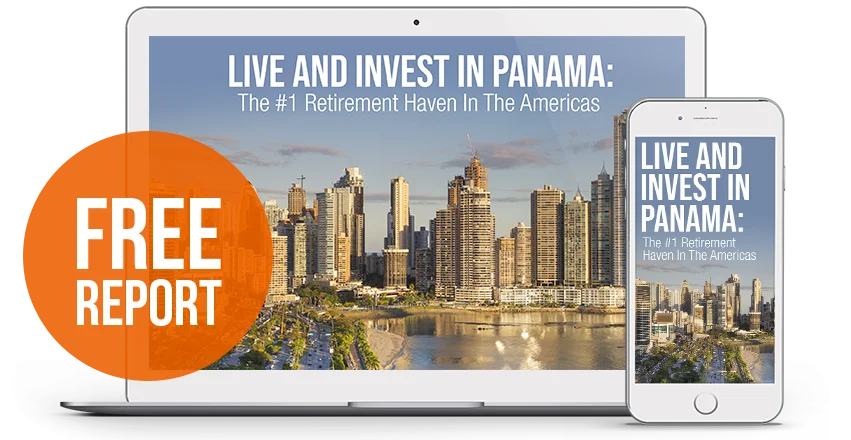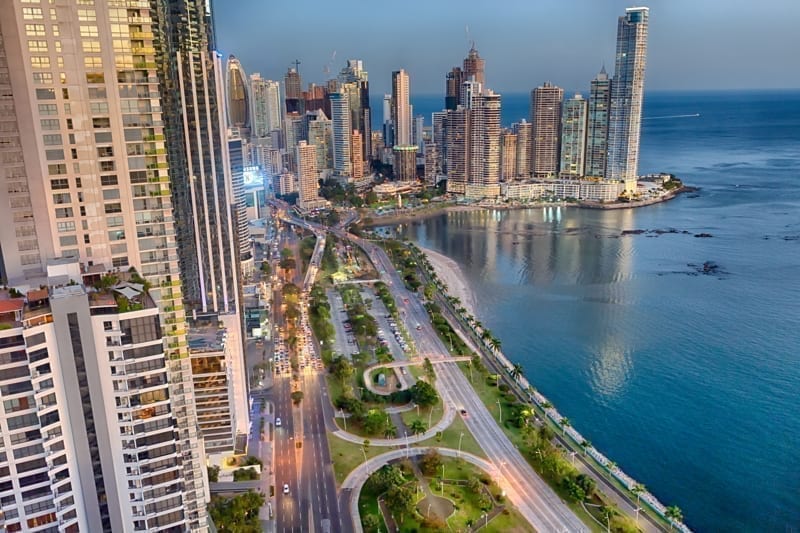Traveling has always enriched my life.
Studying different countries in books and travel articles can be eye-opening… But nothing compares to engaging your senses by putting boots on the ground in a new land and being among a new people.
I experienced this first hand when I visited the Panama Canal for the first time. The Canal could inspire an article for a travel magazine or a history book, but that article is going to be universal by nature in order to appeal to the widest number of people.
Visiting the Canal in person on the other hand…
When I actually stood along the observation deck, I was surprised by what I discovered. As colossal as the tankers, mules, and locks are, they made me think of doing the dishes—watching the kitchen sink fill up with water and then drain again.
What really excited me about my Canal visit was the coatimundis walking in packs around the grounds. I hadn’t known about the raccoon’s laid-back Latino cousin until I saw them with my own eyes.
There’s so much more to be said about the benefits of spending time in another land…
My visit to the Canal opened my eyes. I decided my original Panama travel itinerary—two weeks at a hotel and a self-guided tour—wasn’t going to cut it. I decided to take things a step further and relocate to Panama.
If you’re also interested in moving to Panama, chances are that the method you use will be different than mine. The benefits of doing so, however, will be similar and can last a lifetime, if not longer..
It’s All About The Paperwork
Panama is my parents’ homeland. That was my in.
If you were born in Panama, still retain your citizenship, and have children whose birth you have yet to register, please do them a huge favor and get their birth certificate into the civil registry.
It’s never too late. My parents took care of my paperwork when I was 27. I was able to obtain my Panamanian citizenship well into adulthood with relative ease.
Up until that point, the thought of residing in Panama for an extended period never fit into my thinking. The whole plan came about because of the need to care for an elderly relative.
I knew I was in a position to help; the only hindrance was how long I could stay to make arrangements and then keep them going for the indefinite future. Then, in a conversation with a Panamanian Consulate official, the idea of securing my citizenship was brought to my attention.
That official should really get all the credit for my broadened viewpoint on expat life…
What did ditching tourist status for dual citizenship do for me?
For one thing, I gained the freedom to come and go as needed without extra visa payments or pages in my passport. My money also enjoyed this mobility. Opening a bank account, accessing funds, purchasing, etc., became as easy to do as in the United States. This would not be so if all I brandished was a U.S. passport.
Another opportunity that Panamanian citizenship allowed was the ability to work. And not surprisingly, work for English-speakers can be found—no special need to know Spanish in a number of offices—although, the longer you stay, the greater chance you’ll have of picking up the local language.
Don’t Overlook These Added Bonuses
For me, the true value in obtaining citizenship is not the monetary or even mobility benefits I can tap into. That’s only part of the picture.
With the ability to remain in Panama, I was able to better acquaint myself with family members and the parts of Panamanian culture that I had only partially known.
I recall an insightful conversation I had with my grandmother; she was still alive and residing in Panama City at the time. In three hours of speaking with her, I was able to chronicle more family history than I had learned in the 27 years leading up to that day.
Becoming a Panamanian citizen has benefitted my family in another way. I took the same steps my parents did and obtained citizenship for my son. Bear in mind neither of us was born on Panamanian soil. He was born during the years I was back in the States.
What it boils down to is the legal basis I have when it comes to immigration in Panama. The benefits of dual citizenship can last a lifetime or even longer. The next generation can take advantage of what was established with the proper paperwork.
As the months in Panama stretched into years, I realized something else: I’ve gained a clearer understanding of my parents’ view of things…
Being the first generation of my family born in the United States, there was a cultural gap between me and my immigrant parents. But, living in Panama and being immersed in the culture, the tables have turned. The food, idioms, facial expressions, gestures, and so forth are the norm—not just quirky things my parents do.
A warm and hospitable culture exists in Panama. Greeting people on the street and in stores is a welcomed bonus over the more suspicious attitude that North Americans often show each other.
Many other points could be made about the benefits of second citizenship in Panama or anywhere else, but I challenge you to find them out for yourself.
After moving, it’ll likely be the types of joys I mentioned that come to mind when, at the end of a full day, you sit down at the table to enjoy the city lights, sip a cool drink, and reflect on the journey. That’s how it is for me, anyway…
Matthew Pond
Panama Insider











